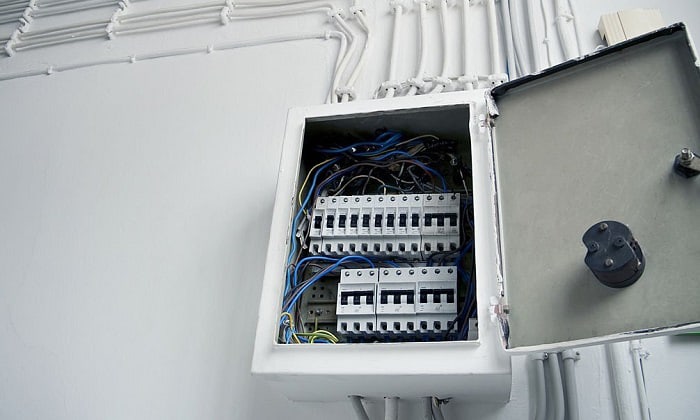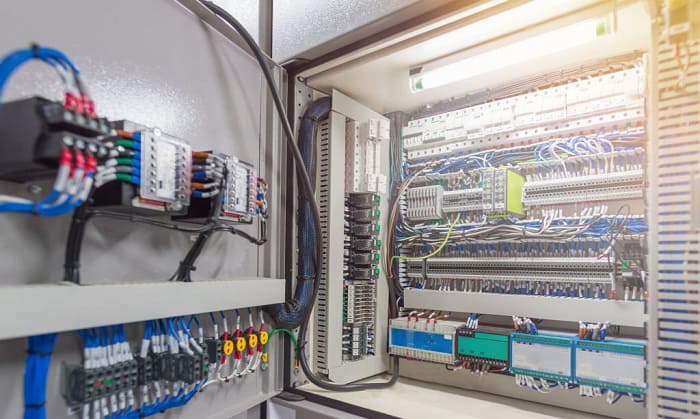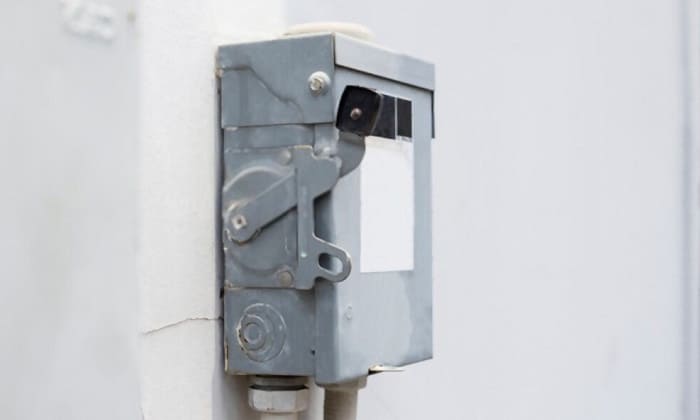As you’re wandering around your new home, you also start wondering why is breaker box on outside of house. Putting the circuit breaker box outside allows firefighters to shut off the property’s main circuits during a fire.
Many fairly new homes will likely have their electrical service panels outdoors. You should also keep reading to learn additional details on the importance of a breaker box’s location.
Table of Contents
Does an Electrical Service Box Need to Be Outside?
No, not all states require putting the electrical service box outside, though doing so can have certain benefits. Some of these possible advantages are:
1. Accessibility
With the main breaker outside house, it shouldn’t promote accessibility issues. In comparison, installing the main circuit breaker in a location like a basement may not be ideal for mobility-challenged people.
2. Enhanced Safety
An electrical box outside house generally has no other objects sitting beside it, reducing the risks of electrical and fire hazards. In comparison, the limited space of some indoor areas might increase those dangers.
Take note that, ideally, a breaker box should be away from other items by at least 30 inches from its sides. The panel should also possess a height clearance of at least 6-1/2 feet to help promote safety.
3. How Do You Secure Power Box Outside House?
Different techniques exist to help secure a breaker box outside your house. One particular solution is to lock the assembly to prevent thieves from accessing the circuit breakers.
Follow this fairly quick guide to lock your outdoor service panel securely:
What You’ll Need
- Cabinet lock
- Screwdriver
- Power drill
- Pliers
- Set of nuts and screws
Step-by-Step Guide
- Step 1: Turn off the main circuit breaker to prevent electrocutions and short circuits.
- Step 2: Loosen the screws from the existing panel cover. Then, pull out the encasement and set it aside temporarily.
- Step 3: Knock out one of the outlines for a hole on the panel cover with the pliers. If you don’t see the lines, you can create a hole with a power drill.
- Step 4: Install the lock on the circuit breaker box’s door.
- Step 5: Reinstall the panel and restore power through the main breaker.
Frequently Asked Questions
1. How To Tell Where Your Breaker Box Is Located?
You can typically find the location of the breaker box by knowing its general appearance. For instance, an outside breaker box look like a metal box within the property’s perimeter.
If you live in a fairly old home, your electrical service panel might still be inside. If so, check places like the basement or garage. Some homes might also have their breaker boxes in a hallway that doesn’t receive significant traffic.
2. Why Would Your Breaker Box Be Installed On Your Home’s Exterior?
Installing an exterior breaker box helps ensure that firefighters can shut off the main breaker during a fire. Failing to turn off the power in the event of a house fire can put additional risk to the dwelling, along with the people in and around the area.
Related: Breaker Box Gets Wet – What Should We Do?
3. Can A Sub-panel Be Outside?
It’s possible for a sub-panel to be outside the house. However, the setup generally requires some particulars.
For instance, the box needs to have an enclosure with a NEMA 3R rating. Also, the gaps need to be watertight. That way, heavy rain won’t incur harm to the breakers in the subpanel.
Conclusion
At this point, you should now know why is breaker box on outside of house. Take note that it might still be a viable option to place the service panel indoors. But doing so might also introduce some hazards, especially during a fire.
Instead, think about placing your circuit breaker box outside your home but still within the property. That way, you can enjoy certain advantages like improved accessibility and safety.
Read more: How to open a breaker box properly.

I am Andrew Wright. With 8 years of experience designing, installing, and maintaining electrical power systems. I love my job, and I have always wanted to offer others the necessary help so they can take care of their houses.



